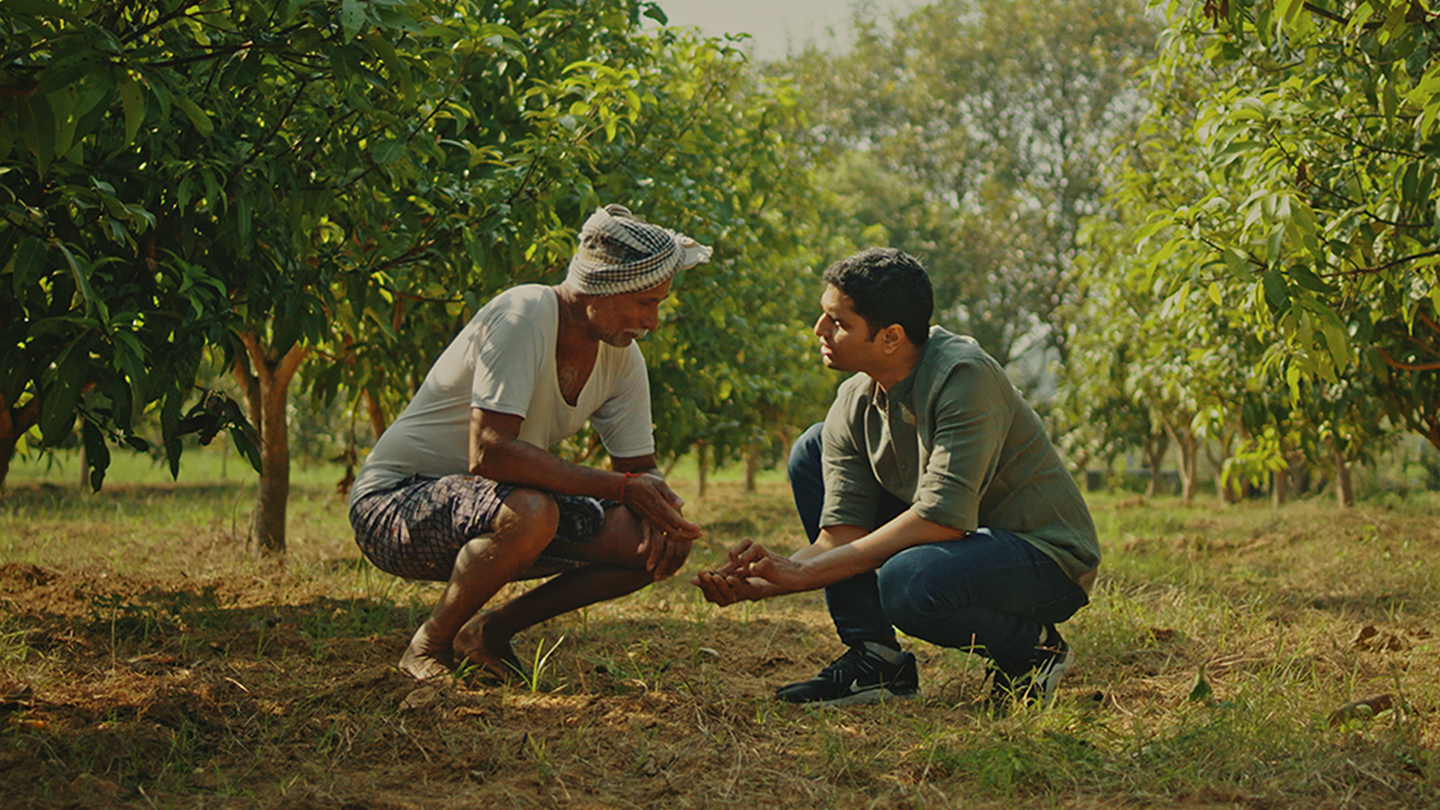
- Logo
- Our company
- Our brands
- Sustainability
- Social impact
- Careers
- News
- Investors
- Search
- Language
- Reciteme
Search

Using Sustainable Farming Practices to Create a Circular Fruit Economy in India
06-26-2023
We’re helping smallholder mango farmers in India adopt sustainable agriculture practices to simultaneously boost crop production and conserve natural resources.
Funded by The Coca‑Cola Foundation and Coca‑Cola India, Project Unnati anchors the company’s Fruit Circular Economy initiative to drive farm-level efficiencies through best-practice techniques including ultra-high-density plantation (UHDP) and drip irrigation. The program, which launched in 2011 to address a mango production shortage, has benefited more than 350,000 fruit farmers across 13 Indian states and union territories.
More than half of India’s population earns their living in farming, but per-capita incomes lag far behind the national average. Coca‑Cola India, which produces the leading Maaza mango juice brand and is one of India’s largest fruit buyers, is doing its part, along with The Coca‑Cola Foundation, to improve farmer livelihoods and build a thriving horticultural economy. The initiative takes a holistic approach to helping every acre of land flourish by improving soil, water, energy and manpower efficiency.
“Since farmers cannot gain access to more land, they must focus on increasing productivity and yields on the land they have while respecting the ecosystem by maintaining a balance between agricultural output and nature,” said Dr. Aditya Panda, senior manager of sustainable agriculture for Coca‑Cola India.
Buses with built-in classrooms visit local villages to train farmers on the processes. In addition, the program subsidizes costs for fertilizer, pesticides, mulch and other planting materials and equipment.
Project Unnati has not only helped farmers more than double per-acre mango yields and improve fruit quality, but also reduce time between sapling planting and commercial production. The program has expanded to cover other agricultural produce, including apples, oranges, grapes, lychee (litchi), sugarcane and coffee, to help boost India’s exports.
“Farmers are often reluctant to embrace new, unfamiliar technologies,” Dr. Panda added. “But once they visit one of our mobile demonstration units, they understand and trust these techniques and are eager to adopt.”
The Fruit Circular Economy also empowers women fruit farmers in India through a 2,000-member cooperative focused on production of grape byproducts (raisins, grapeseed oil, etc.) “Land rights in India are skewed from generation to generation, with property passed on to male members of the family,” Dr. Panda explained. “We hope to address the gender gap in the system.”
